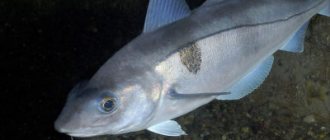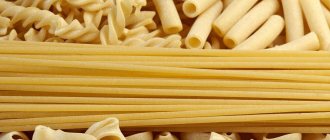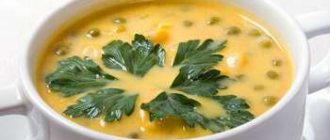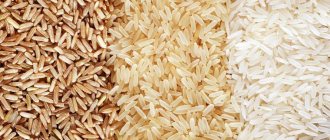Calorie content of lightly salted salmon per 100 grams
Calorie content of lightly salted salmon per 100 grams is 195.3 kcal. In a 100-gram serving of this fish:
- 23 g protein;
- 13 g fat;
- 0 g carbohydrates.
Lightly salted salmon contains a lot of fatty acids Omega 3, Omega 6, selenium, fluorine, zinc, sodium, calcium, vitamins A, E, C, PP.
Contraindications to the use of the product are exacerbations of diseases of the liver, kidneys, stomach, and intestines. Fish will have to be abandoned if water-salt metabolism is disrupted.
Nutritionist opinion
Atlantic salmon is a red fish, rich in mineral and vitamin composition. It also contains a lot of omega fatty acids, which makes it especially valuable in the context of dietary nutrition. Many therapeutic diets allow this fish to be consumed; experts consider it a worthy substitute for meat, especially since the protein contained in salmon is absorbed by the body many times easier than meat.
Atlantic salmon is also welcome in diets designed for weight loss. All the same omega acids help speed up metabolic processes in the body, which allows you to speed up the process of losing extra pounds.
This product is rich in quickly digestible protein, so salmon is recommended to be included in diets followed by various protein diets. In addition, there are a number of weekly nutrition systems developed based on this particular type of fish.
Calorie content of oven-baked salmon per 100 grams
Calorie content of oven-baked salmon per 100 grams is 101 kcal. In a 100 gram serving of fish:
- 8.88 g protein;
- 5.42 g fat;
- 4.79 g carbohydrates.
To prepare baked salmon you need:
- Place 120 g of onion cut into rings on a sheet of foil;
- add 120 g of coarsely grated carrots to the onion;
- Sprinkle 200 g of salmon fillet with lemon juice and place on onions and carrots;
- wrap the edges of the foil so that the juice of the fish and vegetables remains inside and does not flow out onto the baking sheet;
- salt the fish to taste;
- bake the salmon in the oven at 200 °C for 25 - 30 minutes.
What is the calorie content of salmon and how to eat it
This article talks about the calorie content of lightly salted (lightly salted), salted, boiled, oven-baked and steamed or grilled salmon as a steak. Information is also provided on the chemical composition of the product, its nutritional value and benefits. In addition, simple recipes are described according to which you can cook this fish at home.
How many calories does salmon contain?
Salmon is also called Atlantic salmon. 100 grams of such fish contain about 140-150 kcal. This is a relatively lean fish with amazing taste.
- A healthy person can eat up to 200 grams of salmon per day. It is recommended to organize such “fish days” no more than 2-3 times a week.
- A school-age child will need a serving of up to 150 grams with the same frequency. For young children, the portion should be limited to 100 grams, and this product should be given up to 2 times a week.
- But children under 3 years old are allowed to give this type of fish in an amount of no more than 50 grams per day, once a week, alternating it with other varieties.
If a person has problems with the pancreas or kidneys, he can have such a product, but in very limited quantities - in portions of 50-70 grams, no more than once a week.
Calorie table
In the following table we will indicate how many calories are in salmon of different types of preparation per 100 grams of the finished product.
| Type of preparation | Calorie content, kcal |
| Fresh | 140-142 |
| Salty | 202-204 |
| Lightly salted | 195-198 |
| Boiled | 189-191 |
| Steamed | 197-199 |
| Baked | 101-103 |
| Grilled | 230-232 |
Oven-baked fish has the lowest energy value. Grilling increases the calorie content. Therefore, in terms of losing weight, it is better to give preference to baking this delicacy.
Nutritionist opinion
Atlantic salmon is a red fish, rich in mineral and vitamin composition. It also contains a lot of omega fatty acids, which makes it especially valuable in the context of dietary nutrition.
Many therapeutic diets allow this fish to be consumed; experts consider it a worthy substitute for meat, especially since the protein contained in salmon is absorbed by the body many times easier than meat.
Atlantic salmon is also welcome in diets designed for weight loss. All the same omega acids help speed up metabolic processes in the body, which allows you to speed up the process of losing extra pounds.
This product is rich in quickly digestible protein, so salmon is recommended to be included in diets followed by various protein diets. In addition, there are a number of weekly nutrition systems developed based on this particular type of fish.
What to cook from fish
We have collected for you the simplest and most delicious recipes for preparing Atlantic salmon, which you can easily use in your own kitchen.
Ear
100 grams of this fish soup contains only 46 kcal.
To prepare, take:
| Salmon | 550-600 g |
| Potato | 230-240 g |
| Onion | 1 large onion |
| Carrot | 1 large root vegetable |
| Salt and spices | taste |
| Water | about 2 l |
| Vegetable oil | 35-40 g |
Cooking method:
- Cut the salmon into pieces of arbitrary size and shape, place in a saucepan, add water and cook over medium heat.
- Peel the vegetables. Cut the potatoes into small cubes and add to the pan with the fish.
- Chop the onions and carrots. First of all, fry the onion in a frying pan until it starts to turn golden, then add the carrots to it.
- Add the fry to the pan with the fish soup, stir, and cover with a lid.
- After a couple of minutes, salt the fish soup to taste, add spices, stir and remove from heat.
Salmon in batter
This dish is higher in calories - 100 grams contains 227-228 kcal.
To prepare, take:
| Salmon fillet | 350-400 g |
| Soy sauce | 40-50 ml |
| Granulated sugar | 10-12 g |
| Salt | taste |
| Flour | about 180 g |
| Vegetable oil | 100 g |
| Sparkling mineral water | 200 ml |
| Starch | 50 g |
Cooking method:
- Cut the fillet into small cubes.
- Mix soy sauce, sugar, add a little salt. Place fish pieces into the resulting marinade and leave to marinate for 40-60 minutes at room temperature.
- Dry the salmon pieces.
- Mix flour, starch, add a little salt, fill everything with soda and mix well.
- Dip the fish pieces into the batter and then lower them into boiling vegetable oil for 10-15 seconds.
Salmon on the grill
In 100 grams of this dish there are approximately 114-115 kcal.
Products you will need:
| Salmon | 3 kg |
| Salt, ground black pepper, seasoning for fish | taste |
| Vegetable oil | 10 g |
| Lemon | half |
| Tomatoes | 5-6 pcs. |
| Fresh lettuce leaves | 300 g |
Cooking method:
- Cut the Atlantic salmon into pieces 3-4 centimeters wide, salt and pepper on both sides, leave for 10-15 minutes.
- Place the fish on the grill, sprinkle with lemon juice and vegetable oil, fry over low heat until cooked.
- Add lettuce leaves and sliced tomatoes to the finished fish.
Composition of Atlantic fish
On average, 100 grams of Atlantic salmon contains 20 grams of protein, 8.1 grams of fat, about 70 grams of water and a little more than a gram of ash. This product also contains sterols, saturated and polyunsaturated acids. The latter are represented by omega-3 and omega-6 fatty acids.
Salmon contains a huge amount of micro- and macroelements, including:
- phosphorus;
- potassium;
- sulfur;
- calcium;
- sodium;
- magnesium;
- zinc;
- iron;
- chromium;
- iodine;
- fluorine;
- cobalt;
- selenium;
- manganese;
- nickel;
- copper;
- molybdenum.
A storehouse of vitamins and benefits for the body
It’s hard to imagine the vitamin composition of salmon without:
- retinols;
- niacins;
- thiamines;
- alpha tocopherols;
- riboflavins;
- nicotinic, ascorbic and pantothenic acids;
- cobalamins;
- pyridoxines;
- folates
Due to its rich vitamin and mineral composition, Atlantic salmon has a number of beneficial properties:
- easily absorbed by the body;
- accelerates metabolic processes;
- normalizes tissue metabolism;
- regulates the enzymatic activity of the digestive system;
- participates in the synthesis of certain hormones;
- enriches the blood with iron, increasing hemoglobin levels;
- has a positive effect on blood rheology;
- strengthens cell membranes;
- increases cell resistance to free radicals;
- increases the elasticity of tissues, skin, vascular walls;
- normalizes metabolism in myocardial cells, stimulating normal cardiac activity;
- promotes tissue regeneration;
- increases the functional capacity of the liver;
- stimulates the functioning of the cerebral cortex;
- regulates the normal functioning of the nervous system (both central and peripheral);
- improves the condition of skin, nails and hair;
- improves the quality of vision;
- prevents problems of the musculoskeletal system.
about the unique properties of fish
This video explains how Atlantic salmon is beneficial for the human body, and in what cases this fish becomes an indispensable part of the diet.
https://youtu.be/wzv_8-DUkeE
Salmon is a very tasty and healthy fish, which is allowed to be included in the menu in many therapeutic nutrition systems, as well as in weight loss programs. Due to its composition rich in vitamins and microelements, Atlantic salmon is much healthier than other types of fish; it contains easily digestible protein and omega acids, which accelerate the process of losing excess weight.
If you like this kind of food, it will be useful for you to know the calorie content of pink salmon, hake, pollock, blue whiting and other types of fish. Don't ignore the calorie content of squid, seaweed, crabs, shrimp and other seafood. And since many of them are used in oriental cuisine, it’s not a bad idea to find out the calorie content of everyone’s favorite sushi and rolls.
Do you like salmon?
Calorie content of smoked salmon per 100 grams
Calorie content of smoked salmon per 100 grams is 203 kcal. In 100 g of fish:
- 22.6 g protein;
- 12.4 g fat;
- 0 g carbohydrates.
Despite the fact that smoked salmon contains a lot of fatty acids, chlorine, nickel, fluorine, molybdenum, potassium, calcium, magnesium, iron, chromium, vitamins A, PP, this product is not recommended to be eaten in large quantities and often. Otherwise, malfunctions in the gastrointestinal tract, exacerbation of diseases of the liver, kidneys, pancreas, and the appearance of swelling cannot be ruled out.
More on the same topic:
- Karina Writes,
Not everyone knows that salmon, like all varieties of red fish, have quite strong allergenic properties. Therefore, if you have a tendency to allergic reactions, it is better to try a small piece of salmon first to check. It is also worth noting that salted salmon is not indicated for people with hypertension, kidney and bladder diseases. And many nutritionists warn that this fish, like any other sea fish, can accumulate harmful substances. After all, fish often live in polluted waters, where they are caught.
Alena Kravchenko writes,
We sell salmon, but it is artificially grown, not tasty, and even falls apart, but it looks absolutely fresh.
The calorie content of fresh salmon per 100 grams is 140.1 kcal. 100 g of fish contains:
By regularly eating salmon, you saturate your body with vitamins and minerals. The vitamin and mineral composition of fish is represented by vitamins B, A, C, E, D, and the minerals selenium, zinc and chromium.
Benefits of salmon
With regular consumption of boiled and steamed salmon, the following beneficial properties of fish appear:
- salmon is enriched with Omega 3 and Omega 6 fatty acids, which saturate the body with energy, have an anti-stress effect, and reduce the level of bad cholesterol;
- Numerous studies have proven that the beneficial substances of salmon are necessary for the restoration of cell membranes of brain cells and retina;
- salmon normalizes the functioning of the heart and blood vessels, strengthens the immune system;
- when boiled fish is included in the diet, the required level of leptin is maintained, which restores metabolism, accelerating fat burning processes;
- the beneficial properties of salmon have been proven to prevent senile dementia, improve the condition of hair and skin;
- Fish melatonin is necessary for normalizing sleep;
- Salmon vitamins and minerals are important for restoring central nervous system functions.
Useful properties, effects on the human body
A lot of the positive properties of salmon are associated with the presence of Omega-3 polyunsaturated acids in it. The body does not reproduce such acids on its own; it can accumulate them when receiving food rich in Omega-3.
It is important to regularly eat salmon and other types of fatty fish.
The intake of polyunsaturated acids has a positive effect on the functioning of human systems and organs:
- Prevents the development of heart disease, reduces the likelihood of blood clots, which reduces the risk of strokes, Alzheimer's disease, and heart attacks.
- Makes the walls of blood vessels more elastic.
- Has a beneficial effect on the functioning of the nervous system. Mandatory in the diet of people suffering from depressive disorders, vegetative-vascular dystonia and other diseases of the central nervous system.
- Slows down age-related skin aging, improves the condition of the skin with atopic dermatitis and psoriasis.
- Strengthens the immune system. Eating weekly reduces the occurrence of complications during colds.
The vitamins contained in salmon have the following effects on the human body:
- Retinol is important for normal eye function: it prevents vision loss during prolonged exercise, reduces the feeling of fatigue and pain.
- B vitamins are needed for the functioning of the nervous system, skin, and hematopoiesis.
- Ascorbic acid has antioxidant properties. Protects the body from harmful environmental influences. Activates the immune system during the season of ARVI and colds, preventing morbidity during viral attacks.
- Nicotinic acid promotes the expansion of capillaries and improves blood circulation in the brain.
- Vitamin E is actively involved in the production of collagen, which is necessary for skin renewal. Helps with the functioning of the reproductive system, especially in women. Possessing antioxidant properties, it prevents the occurrence of cancer.
- Vitamin D is an essential vitamin for renewing the human skeletal system. Calcium absorption occurs in the presence of sufficient vitamin D. The body is able to produce cholecalciferol when exposed to direct sunlight, but it is easier to obtain this vitamin from food. Salmon is rich in vitamin D, which is easily absorbed.
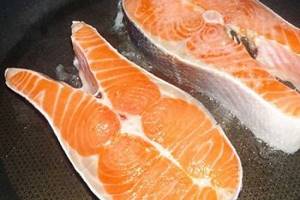
Contains a number of minerals:
- Potassium is an essential element for the functioning of the heart muscle, nervous system, and skeletal system.
- Sodium is an important substance for the normal functioning of the body, maintaining the acid-base balance for the normal functioning of the enzyme system.
- Phosphorus is responsible for the condition of human teeth and bones.
- Calcium is a microelement that is responsible for the functioning of the muscular and skeletal systems.
- Magnesium is responsible for the functioning of the heart, nervous system, and muscles. It is often prescribed for high mental and physical stress. It has a vasodilating effect and is involved in the separation of bile.
The chemical composition of salmon includes vitamins and minerals that promote better absorption of each other. This makes the product useful for many groups of the population.
Harm to salmon
Contraindications to eating salmon are:
- developed food allergies to fish;
- the period of breastfeeding, since in this case malfunctions in the baby’s gastrointestinal tract are possible and skin rashes may appear;
- liver and kidney diseases (this point is relevant for salted and lightly salted fish).
Research by American doctors has shown that mercury accumulates in salmon meat, which can cause severe food intoxication. When eating fried fish, you gain excess weight and the risk of exacerbation of cholecystitis and pancreatitis increases.
SUBSCRIBE TO SITE UPDATES
Dietary properties of salmon:
Who doesn't love fish? On any holiday, and not only, fish dishes are a table decoration. And the most “beautiful” decoration is, of course, red fish, or salmon. It is classified among the so-called fatty varieties. Therefore, many, especially women, have a question: what calorie content does salmon have, and will dishes made from it cause extra pounds? I can say right away: they won’t. Moreover, boiled or steamed salmon dishes. Well, how is it useful?
Like many types of fish, it is rich in so-called fatty acids. But this fish contains the most of them.
She is not offended by minerals and proteins that are beneficial to human health. There are vitamins and unsaturated fats in sufficient quantities.
How to choose fresh, lightly salted and salted fish
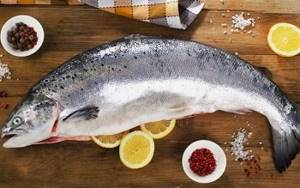
The captured carcasses are cooled. They are sent to processing plants, where they are deep-frozen, salted, smoked, packed in vacuum bags and sent to retail chains.
Often cut into fillets, steaks 2-3 cm thick.
Chilled salmon meat has a soft orange, slightly reddish color.
When pressed, there are no dents left, the flesh is elastic. A fresh carcass has a subtle fishy smell.
Lightly salted or smoked fish is sold by weight or packaged.
Before purchasing, you must check the expiration date of the finished product.
Find out some more useful tips for choosing quality salmon from the video:
How many calories are in salmon?
Well, now directly how many calories are in it. After all, this is probably the main question that interests you. So:
The calorie content of fresh salmon is:
140 kcal per 100 grams of product
Proteins, fats and carbohydrates (BJU) of fresh salmon per 100 grams:
As you can see, this is not much at all for such a fatty fish. Most likely, your figure will not suffer from its use. Although, of course, the measure must be observed. However, as with other products.
How many calories are there in this fish, cooked in different ways? And here it is:
Salmon calorie table, per 100 grams of product:
| Product | Calories, in kcal |
| calorie content of baked salmon | 185,7 |
| calorie content of boiled salmon | 189, 0 |
| calorie content of lightly salted salmon | 195,0 |
| calorie content of grilled salmon | 230,0 |
| calorie content of steamed salmon | 197,0 |
| calorie content of salted salmon | 205,0 |
| calorie content of fried salmon | 194,4 |
| calorie content of smoked salmon | 202,5 |
And the nutritional value of this fish, prepared in different ways, is this:
Salmon nutritional value table (BZHU), per 100 grams of product:
| Salmon | Squirrels, gr. | Fats, gr. | Carbohydrates, gr. |
| baked | 19,7 | 12,4 | 0,0 |
| boiled | 22,5 | 12,6 | 0,0 |
| lightly salted | 23,0 | 13,0 | 0,0 |
| Grilled | 21,8 | 14,1 | 0,0 |
| for a couple | 19,3 | 14,0 | 0,0 |
| salty | 22,06 | 14,17 | 0,0 |
| fried | 19,86 | 12,25 | 0,0 |
| smoked | 22,5 | 12,5 | 0,0 |
Calorie content, composition and nutritional value
The energy value of red fish depends on the method of preparation of the product, for example, the calorie content per 100 g of raw salmon fillet is 201.6 kcal and varies as follows:
- baked in the oven - 184.3 kcal;
- boiled – 179.6 kcal;
- grilled – 230.1 kcal;
- fish soup from salmon head –66.7 kcal;
- lightly and lightly salted – 194.9 kcal;
- steamed – 185.9 kcal;
- fried – 275.1 kcal;
- salty - 201.5 kcal;
- smoked – 199.6 kcal.
How is fish good for weight loss?
There are two types of fish that help get rid of fat deposits. These are salmon and tuna. They are rich in protein and contain two fatty acids, which promote the breakdown of subcutaneous fat and “stimulate” metabolism. An excellent option for lunch or dinner is a piece of fish, plus a vegetable side dish. Steamed vegetables are best for this.
Salmon is considered a fatty fish, but due to its low calorie content, it does not harm the figure at all. On the contrary, it stimulates metabolism (due to the amino acids it contains). In addition, due to its high protein content, it satisfies the feeling of hunger for a long time, which makes it possible to avoid snacking on cookies or candy while losing weight.
Of course, you should not abuse it. This fish is rich in protein, so you need to be careful in consuming it daily. Nutritionists advise not to get too carried away and consume no more than 250 grams of it per day.
How to save it correctly?
Salmon is a fairly quickly perishable product that must be eaten fairly quickly in order to get the maximum amount of nutrients from it. However, in order to save it, certain requirements must be met.
Storing fresh salmon
Salmon should always be stored in the refrigerator. This should be the basic rule when storing this type of fish. If you bought frozen fish, you should immediately put it in the freezer, unless, of course, you are going to eat it very soon. Under no circumstances should salmon be re-frozen, as this will not only lose its value, but will simply spoil. However, if the fish was purchased chilled, then its taste and freshness will help preserve a few tricks.
- Before placing the cooled carcass in the refrigerator, place it in a large bowl filled with pre-prepared ice cubes. This will help preserve its subsequent juiciness;
- Lemon juice or apple cider vinegar will also help maintain juiciness. If you decide to use vinegar, then wrap the fish in gauze soaked in it and then put it in the refrigerator. When using lemon juice, you just need to sprinkle it on the skin of the fish;
- Before putting the salmon in the refrigerator, wrap it in foil or cling film. You should also keep it away from other types of foods.
These simple life hacks will help increase the freshness of Atlantic salmon, but there are certain limits beyond which you can safely say that the fish has gone bad.
Under no circumstances should salmon be stored at room temperature. If you left it on the kitchen counter, it will spoil in just a couple of hours. However, if it was placed in the freezer, its shelf life will increase sharply to several months.
Just do not need to freeze a product that has begun to deteriorate, as it will not get its beneficial properties and taste back. The most optimal storage temperature is -20 degrees.
However, there are standards for chilled fish, which state that such fish can be stored in the refrigerator for no more than 5 days. In fact, salmon only stays fresh for two weeks after it is caught. Therefore, be sure to look at the expiration date, because often it is brought to the store already stale.
How to properly store smoked and salted fish
Now you can easily buy this type of salmon. It is usually sold in vacuum packaging. However, to ensure the freshness of this product, it is better to follow the following rules:
- Do not store it in the refrigerator for more than 10 days. Be sure to be in unopened vacuum packaging or in a plastic bag so that it does not oxidize. This advice is suitable for both salted and smoked fish (store it for no more than a week);
- salted fish can be marinated to increase shelf life. Cut it into pieces and pour olive oil over it;
- Salted fish can be stored in the freezer for 6 months.
You can learn about the calorie content of salted salmon in the following video:
Salmon is incredibly healthy and at the same time the most delicious fish available. Of course, it must be wild for this to happen, so be careful when choosing your products. If you steam or boil it, salmon will be an excellent low-calorie dish that will help with weight loss.
Recipe? Recipe!
What can be cooked from this fish? Yes, a lot of things. Here, for example, is a recipe for a simple salad:
Salmon salad:
Half a kilogram of salmon. The fish must be cooked and must be cooled to room temperature. Further:
- celery, two stalks
- half a red onion
- juice of one lemon
- olive oil, one tablespoon
- dill
- salt
- ground pepper
First of all, you need to finely chop the celery, red onion and dill. Place the fish on a separate plate. In another bowl, mix chopped celery, onion and dill. Add lemon juice and olive oil here. After mixing, carefully pour it all into a plate with fish. Add salt and pepper as needed and for taste. Place the finished salad in the refrigerator for half an hour to cool. And that's it, the salad is ready.
Video about the unique properties of fish
This video explains how Atlantic salmon is beneficial for the human body, and in what cases this fish becomes an indispensable part of the diet.
https://youtu.be/wzv_8-DUkeE
Salmon is a very tasty and healthy fish, which is allowed to be included in the menu in many therapeutic nutrition systems, as well as in weight loss programs. Due to its composition rich in vitamins and microelements, Atlantic salmon is much healthier than other types of fish; it contains easily digestible protein and omega acids, which accelerate the process of losing excess weight.
If you like this kind of food, it will be useful for you to know the calorie content of pink salmon, hake, pollock, blue whiting and other types of fish. Don't ignore the calorie content of squid, seaweed, crabs, shrimp and other seafood. And since many of them are used in oriental cuisine, it’s not a bad idea to find out the calorie content of everyone’s favorite sushi and rolls.
Do you like salmon? Have you ever been on a diet based on this fish? Share your experiences, impressions, as well as delicious and healthy recipes in the comments, this is interesting to all readers.
